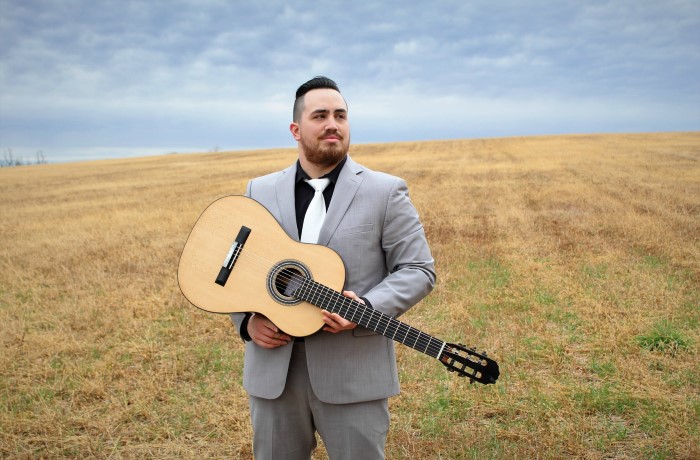
- This event has passed.
Chaz Aguado Guitar Concert at Carroll Community College
April 22, 2023 @ 3:00 pm - 4:30 pm

The selected works being performed in this concert were written by the following nineteenth and twentieth century composers: Johann Kaspar Mertz (1806 – 1856), Dilermando Reis (1916 – 1977), Agustín Barrios Mangoré (1885 – 1994), Joaquín Turina (1882 – 1949), and Roland Dyens (1955 – 2016). In the nineteenth century, the guitar was not considered an orchestral instrument and became less attractive to composers. This was due to many factors including the limited volume and lack of knowledge regarding the timbral and compositional capabilities of the instrument. Orchestral scores presented many capabilities of evoking the sounds and timbres associated with guitar, particularly because of the allure of flamenco and Spanish folk music from Andalucía. However, composing the same folk songs and dances for guitar would be redundant and unnecessary because the orchestra could produce the same result for larger venues. Despite these negative implications, nineteenth century composers such as Johann Kaspar Mertz (1806 – 1856), Napoléon Coste (1805 – 1883), and Giulio Regondi (1822 – 1872) composed major works for classical guitar. At the onset of the twentieth century, the classical guitar was revived with new repertoire, pedagogical methods, and orchestral concertos that would feature classical guitar as the soloist. This resurgence would be in large part due to the Spanish guitarist Andrés Segovia who sought to rescue the guitar from its Spanish folklore elements. Segovia commissioned music for the guitar, which in turn would influence other guitarists to commission works from prominent twentieth century composers. As a result, the classical guitar saw a vast expansion of repertoire that is still growing today. More importantly, the unique and innovative guitar works from the twentieth century are revered for their distinct styles and timbres that are associated with the classical guitar.
Chaz Aguado is the classical guitar instructor at Frederick Community College and is also an adjunct professor at Carroll Community College and Towson University. Dr. Aguado has been a private instructor for over ten years and is an active musician and teacher in the greater Washington DC/Baltimore area. He received his Doctor of Musical Arts from Shenandoah Conservatory and holds a master’s degree from University of Denver and a bachelor’s degree from Towson University. He also teaches other styles of guitar such as rock, country, blues, and metal at Lake Braddock Secondary School in Burke, Virginia. Some of the notable pedagogues he has studied classical guitar with are Mathew Palmer, Troy King, Laura Husbands, Jonathan Leatherwood, Julian Gray, and Ricardo Iznaola. Dr. Aguado performs regularly at many different venues. Most often you can find him performing classical guitar in recital and concert halls. Not only does he perform as a soloist but also as a chamber artist with vocalists, cellists, violinists, and flutists.
